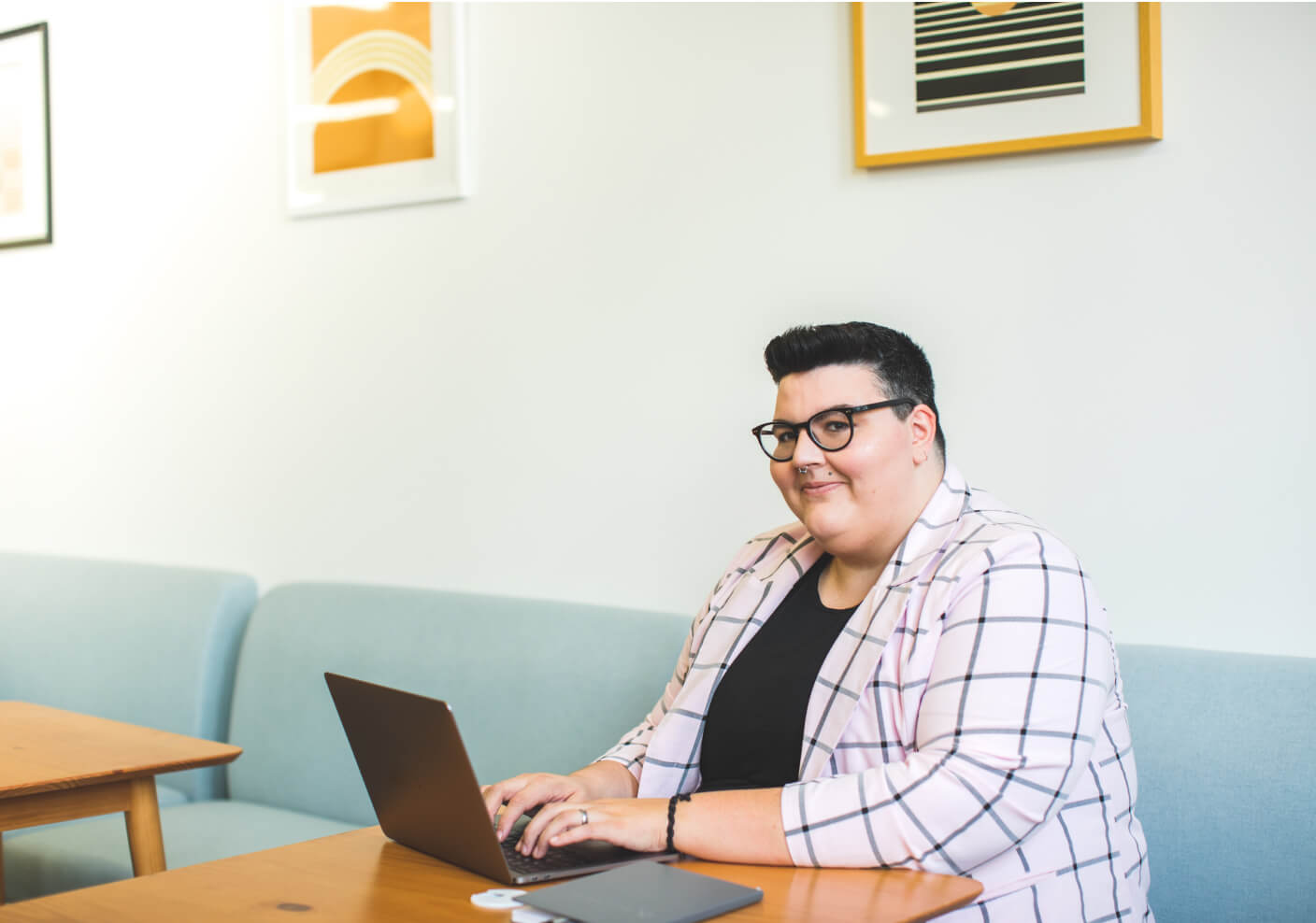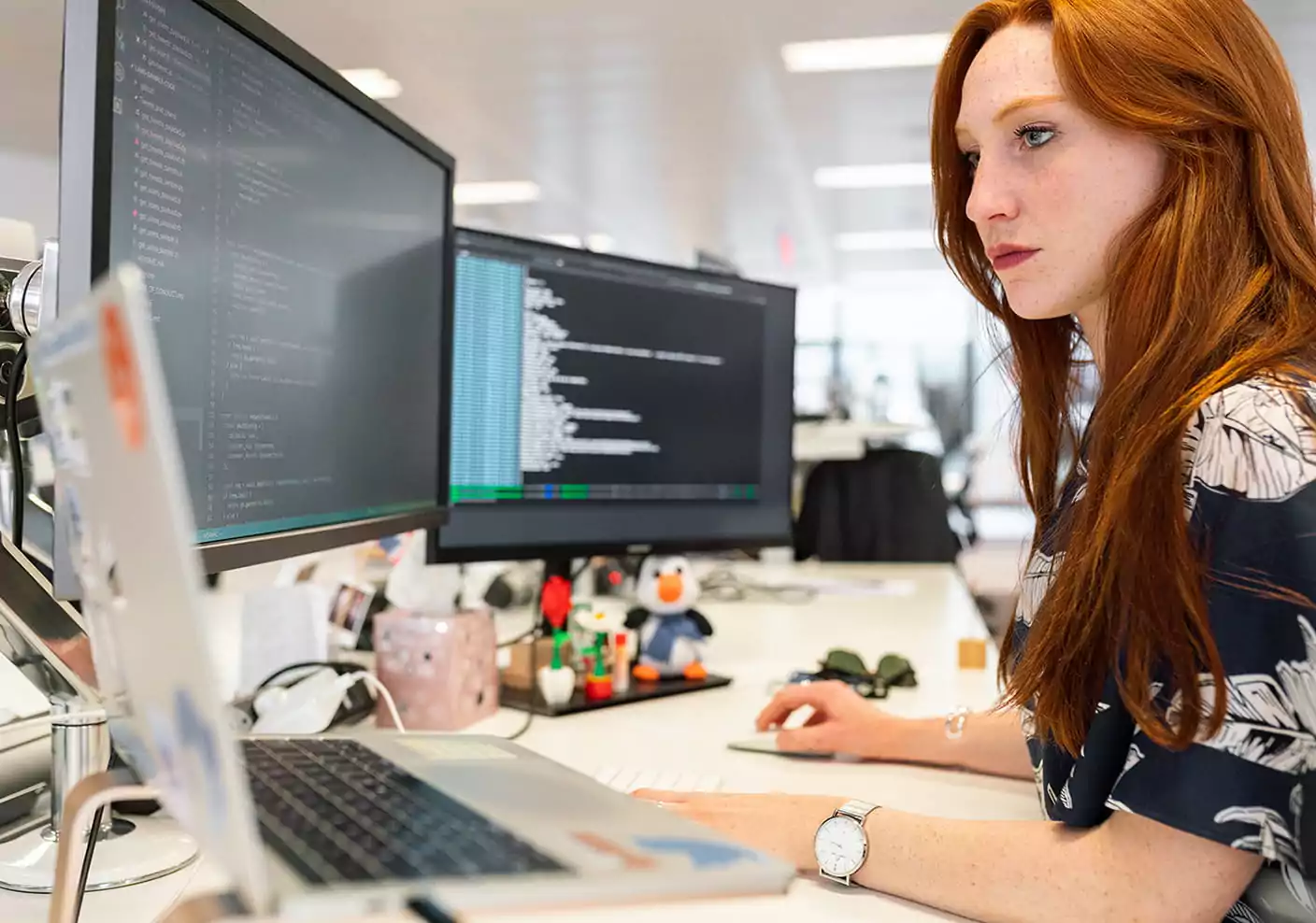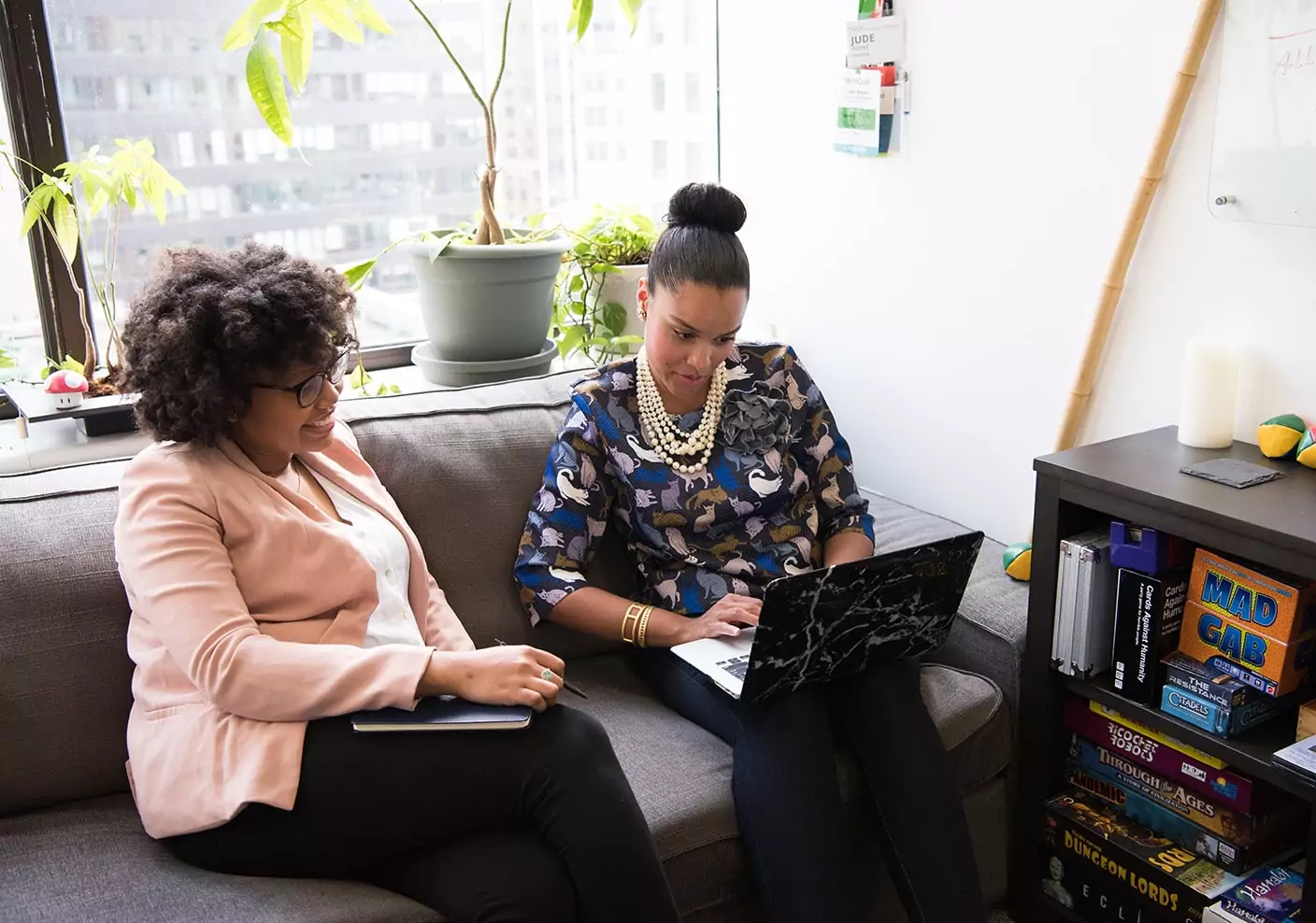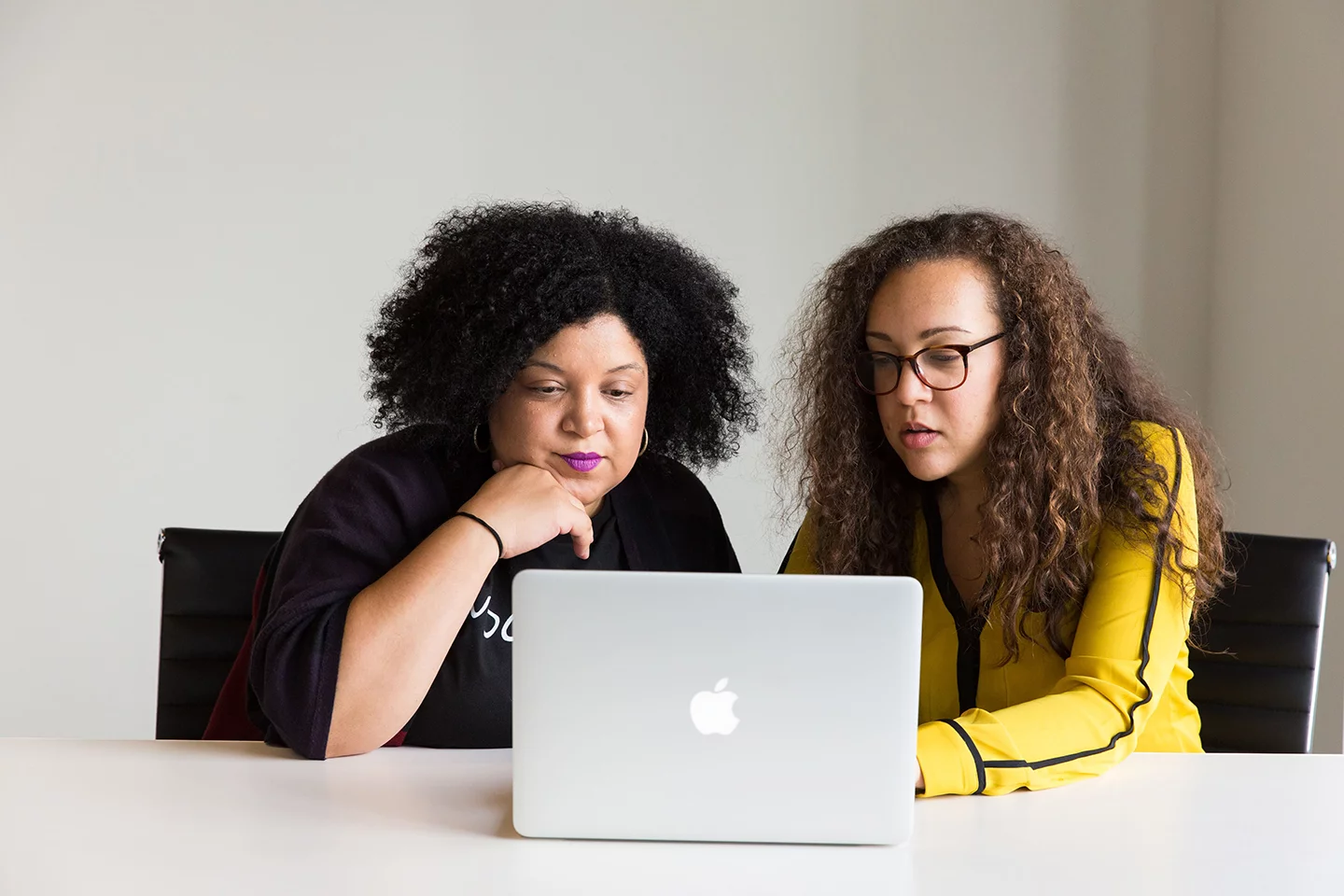Our 2021 Future of Work Virtual Roundtable Series continued this week with a session from Myoshi Maul of Cox Communications. In “Gamification and Diversity, Equity, and Inclusion: Perils, Pitfalls, and Opportunities,” Maul conducted an eye-opening, impactful exercise with our participants. She also shared several ideas for how you can engage your own teams and drive greater awareness and understanding of privilege and equality.
Below is an edited excerpt of Maul’s presentation. Join us for our upcoming Future of Work sessions by signing up here. And, to experience Mursion’s virtual reality simulations and see for yourself how this platform can support your own business to achieve its DEI and other business goals, schedule a demo today.
“I’m a behavioral scientist, and I’ve been doing this deep work on inclusion, diversity, and equity for about 25 years. It’s interesting how everyone has joined in this year. It’s really exciting to see where we might be going.
At heart, I am a rock climber. I am also behaviorist. Those two loves have come together to allow me to really help others find their own voice, find their courage, and lead others so that they’re more effective, they feel empowered, and they have a sense of belonging. I’m really excited to be able to share one of the games that we wrote for our audience with all of you to get your feedback on it, and to see where we might go as we develop deeper levels of empathy for those who may not have the same advantages that we do.
As I work with leaders in our organization where I am, a lot of folks are having these conversations around privilege. When we started talking about privilege, I got the big stop sign, ‘That’s a bad word, Myoshi. We don’t talk about privilege. We can talk about Black lives. We’re not talking about white privilege because people will become inflamed, because they don’t believe it.’ I said, ‘Well, that’s an interesting idea. When you’re inside of something, it’s difficult to see it, isn’t it? How could we come up with a way for people to understand other people’s experiences by immersing them in a game?’
How could we come up with a way for people to understand other people’s experiences by immersing them in a game?
The Starting Line
You may have seen a video that’s online that’s been widely distributed, and it’s old, but it’s called the Starting Line. It’s where there’s a coach, and he’s lined up with some camper kids. The goal is to reach him first, and if you do, you then win $100. As I was exploring and watching that video and watching that game, it occurred to me that that’s not really the starting line, is it? Because as I explore and talk with people in different organizations in the community, and I ask them, ‘What’s going on? How is your sense of psychological safety? How do you feel about organizational justice where you are?’
The common themes are, ‘We’re afraid to talk about it, we don’t have real conversations, I might step on a rake, I might hit the cancel culture, I’m just not going to do it.’ We know that that’s not going to help us move forward. As we think about pitfalls and perils, where can we win? How can we help people to develop an understanding of the other’s experience?
How can we help people to develop an understanding of the other’s experience?
I’m going to share with you today, it’s called the Starting Line, but it’s my version of the Starting Line. The goal here is to reach 100. Now, here’s the starting line. We’re going to say the starting line is zero. At this point, everybody has zero points. If I make a statement and I say, step backwards, you lose 10 points. If I make a statement and I say, step forward, you gain 10 points.
First question, if you identify as Black, a person of color, a woman, a lesbian, gay, bisexual, intersex, asexual or queer, take one step back and lose 10 points. If you identify in two of those categories, take another step back and lose another 10 points. If you are in three of those categories, you get it, take another step back and lose 10 points. If you identify as transgender, take four steps back and lose 40 points. If you are indigenous, take six steps back and lose 60 points. This, my friends, is the starting line.
All right, my next few statements are going to be taking a step forward. Remember the goal. The goal is to get to 100. Step forward, gain 10 points, if you had hot and cold running water in your home growing up as a child. Take one step forward if you lived within walking distance of a grocery store where you could purchase fresh meat, fruits, and vegetables. Take one step forward if one or both of your parents went to college. Take one step forward if your parents owned your home. Take one step forward if you had both parents in your home growing up. Take one step forward if you have a sponsor at work. If you don’t know what a sponsor is, it’s likely you don’t have one. Take one step forward if you had private health insurance as a child and growing up. Take one step forward if you have a friend from whom you can borrow money. Take one step forward if you have a family member from whom you can borrow money. Take one step forward if you’ve never had your electricity or heat turned off due to nonpayment. Take one step forward if you’ve always had a roof over your head. Take one step forward if English is your first language. Take one step forward if your parents inherited property. Take one step forward if you are a white male.
Raising the Stakes
These questions can be customized to your group. These are the questions that I use in my organization, because I know in my organization how things are going, and based on the research outside, I was able to pull those together.
Could it affect the way that I feel around my peers? Might it impact the way that I’m able to contribute? Think about other privileges that are — a lot of these privileges are based in childhood.
Today, when we look around through the pandemic, we have some folks who are single parents who have a 14-year-old year old child taking care of a two-year-old, because the parent has to go to their frontline worker, they have to go to work. Or we have disparity in healthcare. We’re all hearing about this in some of the marginalized communities, people are refusing to take the vaccine because of past macroaggressions, I would say at this point to certain communities.
If I’m in an organization where I may be faced with unconscious bias, I may not have access to tools, resources, development, and training that other people may get because I’m not seen as valuable in some cases, and it may not be conscious, I would say. There are very few people who come to the workplace or volunteer in the community who are trying to tear other people down. Often, that is an unconscious reaction to something that they’ve been — there’s a pattern in their head that’s running a script and they’re not aware of it. It’s unconscious bias. It’s very rare that people show up and try to hurt other people.
This is one of many games. This game really just took about a couple of hours to write based on research that I’ve done. It’s really been engaging for our teams to be able to participate in this kind of an activity. I had some VPs who were like, ‘Holy cow, I got to a hundred, and I looked back and saw that most of the people didn’t. I don’t feel good about that, and now I need to use my voice in new ways.’
Privilege for Sale
We’ve written other games that help people understand unconscious bias. I’ve got one that’s called Privilege for Sale, which is fun. I’ll share what that one looks like, so you guys can write your own version.
Privilege for Sale is, you create a list of 30 different privileges, and they can be whatever you want them to be. My list is the ability to buy hair products that suit me, or the ability to go to a grocery store without being followed, or to drive a car without being pulled over. It’s whatever you want it to be like, to sit in a Starbucks.
Based on your audiences, you have this list of 30 privileges, and then you send people off. You say, ‘You’ve got $300. Each privilege costs $100. You as a team decide which are most important to you.’ It’s fascinating to watch what people determine is a privilege, because most of the things on the list are things that you must have in order to live comfortably in the world.
At about five minutes into that game, I start sending notes into the breakout rooms, because they’re in breakout rooms at this point, and I’ll start taking money from teams and saying, ‘There was an economic downturn. You lose $100.’ I arbitrarily take $200 and give it to another team that didn’t need it. Then you start creating this real-world experience in these breakout rooms, and people, they show up in ways that are really unique.
The first time I ran that game, I had all of these teams who had money that were given extra, well, they took that money and they gave it back to the team that I took the money from because they’re like, ‘That’s not fair. That’s not equitable, and you can’t do that.’
When they walked away, they said, ‘Oh, my goodness, what am I missing, for the people I support on my team, my peers, and maybe even my direct reports? Where could I get better, and how can I help? Because if there’s no equity outside, I at least want to create equity in here, behind our safe walls, in this organization.’
Because if there’s no equity outside, I at least want to create equity in here, behind our safe walls, in this organization.
I encourage all of you to think about, how can you create experiences, not training, experiences where people are immersed?
Conducting a Cultural Dig in Your Org
I was going to share a couple of other things that we’re doing in my organization that may add value for some of you. We know that in our organization, where I’m in a technology organization, we talk about women in non-traditional roles rather than men in non-traditional roles. What I’m doing in my organization is measuring how we retain them, because what I know in my organization is we’re retaining women in non-traditional roles, but they’re moving around quite a bit, and we want to understand what’s driving the movement. Is it positive or is it something that we need to really take a look at? We know if we’re going to stay competitive, we have to keep the pipeline filled with women in non-traditional roles to help us grow better into the communities where we live and work.
Something else that we’re doing is a cultural dig, and you all can do this. This is kind of fun. In my organization, we’ve got some folks that are on the phone quite a bit. They can’t come to maybe a listening session or a game session like you participated in. Maybe they have like two to five minutes to get involved in something. We put together the cultural dig, and that is just a personal exploration of the team that you sit on. What are the habits, behaviors, words, languages, assumed culture that makes everybody feel welcome, and what are the one or two things that may make a new person feel excluded? Then we’ll capture that, and quarterly we bubble up those things that we think are actionable, and we invite the people who submitted the ideas to come and help us solution them. That’s something that anybody can do. It doesn’t really cost a lot of money to do.
One game that we ran today and the one that I talked about, something that you can design yourself. It doesn’t take long, just explore your own organization and see where the pain points are, and put those on the list, because really what you’re doing is you’re trying to immerse people into a space where they may not have ever been, but you know others in your organizations have felt that.
The other thing is to really never make it one and done. While we play the game, we have a lot of conversations afterward, so that game we played, we’re playing it multiple times this year with different audiences. I’ve got a panel that’s going to address privilege next month with our senior teams. The people who participate in the game now gets go to an education experience, and then they will debrief that with their leaders and their teams to see what can we do as our team to make sure that we’re recognizing any inequities and making a more equal injustice team for where people sit.”
Subscribe for the latest Mursion articles and updates.
By clicking the sign up button above, you consent to allow Mursion to store and process the personal information submitted above to provide you the content requested. View our Terms and Conditions.




